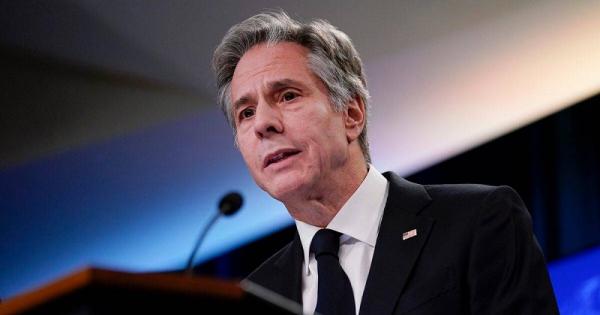Hot and elderly in cold Japan!

It’s hot in Japan! So much so that there is a power shortage in the country due to the consumption of AC. The government had to give a call to the people to keep the electricity off. In the capital Tokyo, the mercury was around 35 degrees in June. In some cities, the temperature was 40 degrees on Friday. Think how hot it is in the far north of Japan! But why only Japan, apart from Japan in June, China, Italy, Norway, Finland etc. were breaking heat records everywhere. The destruction caused by heat and floods in southern China in the month of June is record-breaking. Usually, in the months of July to August in these remote countries of the North Pole, the records of heat are broken, but from June this year, people are sweating. That is why the discussion of climate change is all-round in the hearts and minds of the people.
However, back to Japan. The record breaking heat in Japan is worrying because this country is raising the most elderly people. It is natural that the elderly will be suffering from the heat. But see the wonder of the country of Japan that temporary group camps were immediately set up for the elderly leading a single life. Round the clock AC and facilities for indoor games, TV etc. in the hall with facilities for care and food. Looking at the footage of this arrangement, it was noticed that last week some five thousand people (mostly above 65 years of age) were admitted to hospitals due to heatstroke but no deaths were reported.
That is why the country of Japan is wonderful. Able to save his citizens in every situation and calamity! Japan is a country hit by natural disasters, but the disaster management is such that whether it is an earthquake or a tsunami or a nuclear power plant accident, the loss of life in all will be minimal! In all the calamities like heat, cold, flood, storm, tsunami, earthquake, the life of every citizen is valuable. Japan is surrounded by sea from all sides. So you can imagine how the old Japanese must be passing in the double whammy of scorching heat and humidity? But the truth is that in the midst of all the noise and worries, old people are carefree. Because one is old people are capable of themselves. The texture of other Japanese society and the auto mode of the government are intertwined by making all the arrangements on their own. So no matter how hot it is, disasters and disasters come, but the Japanese have minimal risk of premature death.
No wonder Japan has the highest life expectancy. The age of ninety is normal. Elderly people make up 29 percent of the population in Japan. Out of twelve and a half crore people, some four crore people are above 65 years of age. This is much higher than the rest of the developed countries, America and European countries (some 20 percent). All are getting pension. As such, Japan’s number one crisis is that there are fewer earners and more eaters. The working youth population is continuously decreasing. It is estimated that between 2025 and 2040, the working population (people in the age group of 20-64 years) will barely survive 10 million. In 2000, there were 3.6 people working behind an elderly person. That ratio will drop to 1.3 in 2050. Meaning then the majority of the population would be elderly.
Then how will the elders be discharged? Obviously, the issue of the ratio of working and elderly population is serious. The elderly system in Japan is maintained by taxes on working people. There are two important taxes in Japan. One consumption tax and the other compensation tax for the maintenance of the elderly. The working population of the country pays the pension premium of the elderly at 18.3 percent tax on their salary. Think, what kind of society, in which every working person (government-non-government all kinds of employees) is taking it as the responsibility for the elderly system that we have to arrange them. The working population pays a premium for the elderly society, so consumption tax, the main source of government income, also accounts for a large part of the budget of the elderly. The rate of this tax is currently ten percent, but by the year 2050, according to the proportion of the increasing population of the elderly, experts believe that it will have to be 22 percent by 2040 and 30 percent by 2050. In this way, by raising money and with a growth rate of one percent per year, Japan will be able to run itself in the future.
So, the problem is the elderly population. Thus, in the twenty-first century, what happened in Japan in the last century is going to happen everywhere and is happening in America and European countries. Means the incidence of birth rate. Lower death rate and higher birth rate lower! The year 2010 was the peak of population in Japan. At present, the new generation and working population are being molded in such a way that the interest of marriage among boys and girls is over. Even if you get married, after passing the age. Therefore the birth rate of child birth is at the bottom. It is now from Japan that this trend seems to be forming in the world that young people have started living a single life. They live alone. Will eat alone and roam alone and have fun alone. This way of life is the ‘super solo’ culture of Japan. There is no need for marriage and no need to share with anyone. Well, there is no question of creating trouble for the children.
This is a new social structure. Because Japan has been a country with a collective lifestyle and insistence on family. But now the elderly and the young are all living a life of contentment in single life, that ecstatic state in personal happiness, whose realization is probably possible only in privacy. It’s a strange issue. Think, imagine how the Japanese built themselves and their country after the destruction of the Second World War? A lot of disciplined hard work will have to be done. By adopting modern technology, he gave the best industrial production to the world. Within twenty years, Japan became a global powerhouse in the economy. That is why the story of Japan’s self-realization and pride of civilization-society-culture and nationality is unmatched. In the understanding of science-tech-physical achievements, the effect of the Japanese should be understood from the fact that in the future scenario of population and working population there are people suggesting that robots will start working by then!
What will people do then? Will do what 29 percent of the elderly of the population are doing now. Generally, many elderly people work even after retirement. The government is in favor of work till the age of 70. Japan’s elderly population is not weak compared to other countries in terms of health. Lifestyle diseases are not the same as in other countries. Even if one of the elderly couple dies around the age of 80, life is not difficult for the other because each person has a habit of doing his own work. On the contrary, it seems that in old age Japanese people do more physical work. Making gardens in the house, decorating every tree with one’s art, jungle-mountain, seashore fishing, cooking, art, music etc. are so many pastimes as if the elderly population of Japan is only to live in the ecstasy of heritage. Perhaps it is also generational that is why the working youth population pays taxes, premiums for the old people thinking that because they also know, they also want to enjoy the last years of life in their old age without worry. For 65 to 90 or hundred years, live life with enthusiasm and not worry about old age.
That is why Japan is wonderful because there are such a large number of people who are living a life of contentment, comfort and happiness. He is making the phrase ‘Quality of Life’ a reality with his life. Enjoying heaven and salvation on earth!




